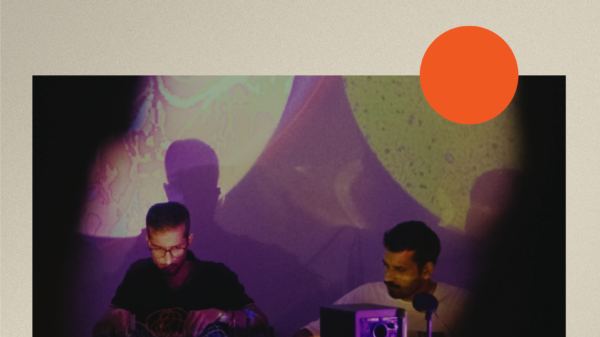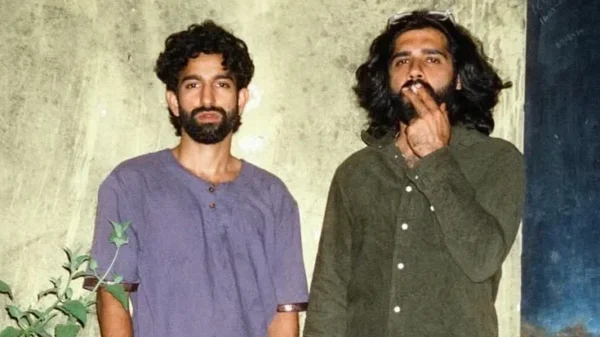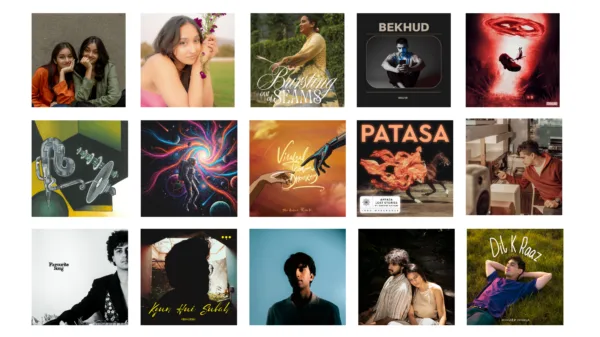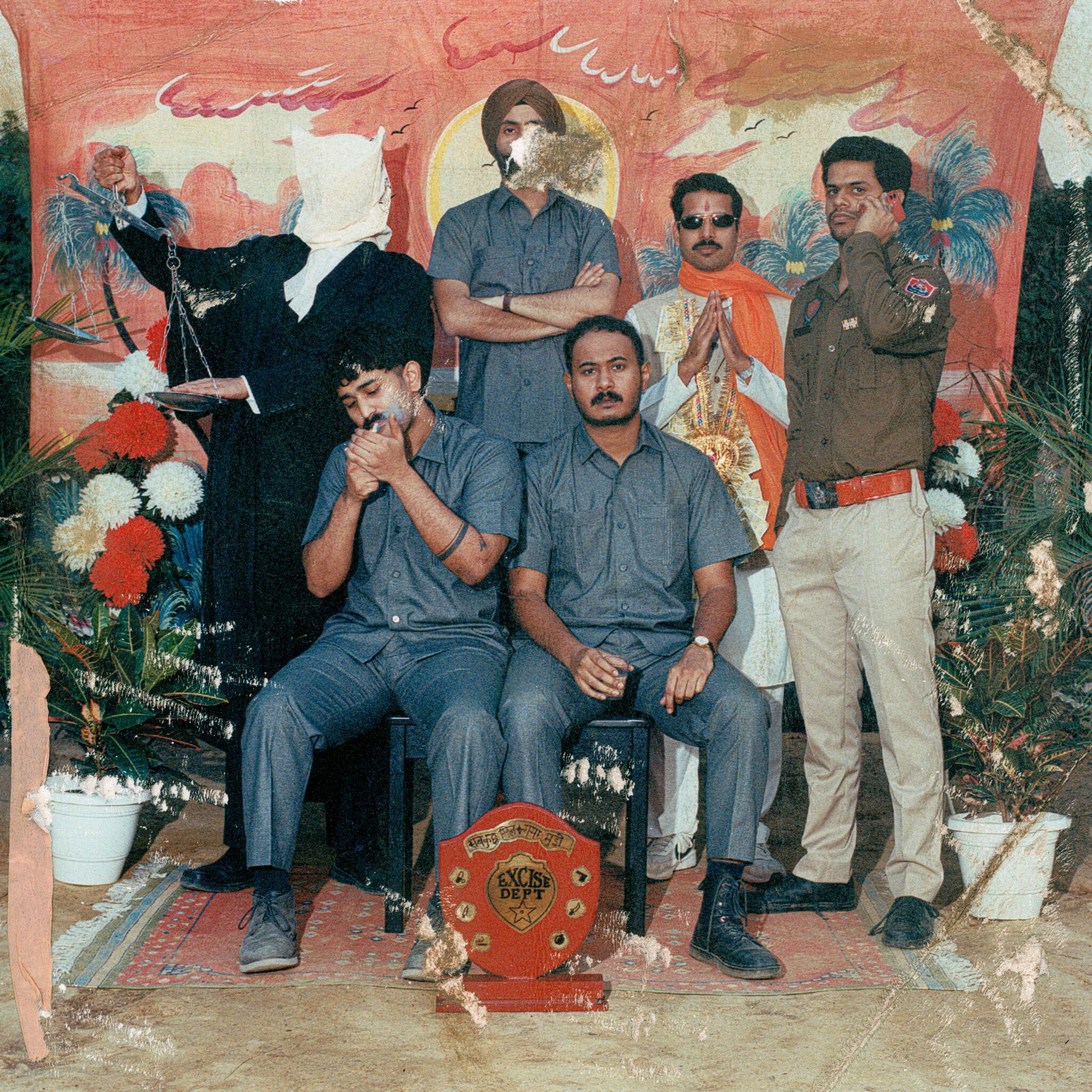In times of ostentatious displays of patriotism and another annual celebration of the Indian Independence Day rolling closer, I often think of Benedict Anderson’s take on nationalism : I propose the following definition of the nation: it is an imagined political community-and imagined as both inherently limited and sovereign. It is imagined because the members of even the smallest nation will never know most of their fellow-members, meet them, or even hear of them, yet in the minds of each lives the image of their communion…. Communities are to be distinguished, not by their falsity/genuineness, but by the style in which they are imagined…. Finally, [the nation] is imagined as a community, because, regardless of the actual inequality and exploitation that may prevail in each, the nation is conceived as a deep, horizontal comradeship. Ultimately, it is this fraternity that makes it possible, over the past two centuries for so many millions of people, not so much to kill, as willing to die for such limited imaginings.” While we are all fed the utopian belief of a culturally integrated familial society, for most people, especially in countries like India, I think the illusion breaks, sooner or later, especially when the sharpened ends of dynamics of caste and class confront and cut through your being, extremely early on in your life.
The assertion of identity in times of maximised globalisation — when you come from social fabrics that are so fraught by multiplicitious characteristics that “oneness” almost seems mythical — becomes so incredibly complex an act that it perspires into mayhem, of sorts — it is almost disorienting. Excise Dept.’s preface for their debut album, SAB KUCH MILGAYA MUJHE Vol. 1, is extremely necessary a record for the contemporary timeline, the group preface their project — “This is a chaotic album for chaotic times. Rejecting the nearly epidemic-level tendency of Desi artists to rebrand themselves as representatives of a universal “South Asian”-ness or “Brown”-ness, EXCISE DEPT’s take on identity is far more schizophrenic. It exists somewhere in between all the politics, vulgarity, violence and culture wars that clash constantly in their efforts to define us as Indians. It doesn’t actually know what it means to be Indian, and in turn, does not claim to represent Indian-ness. Nonetheless, it is undoubtedly and unquestionably Indian. Moreover, the album’s deft code-switching between Punjabi, Bengali, Hindi and English makes it further loaded with each language’s historical and cultural contexts.”
The album — and all the art that has been created in association with it — could mark it as one of, if not the best, independent projects that has come out of the country in recent times. Every once in a while one comes across projects that make you halt in your tracks and sit with all the ghosts it conjures up in front of you, grapple with all the question it poses before you, and understand your own limitations in the understanding of the contexts that you exist in — this record is one of them. In their words, EXCISE DEPT was formed in the wake of the nationwide lockdown in 2020 by multidisciplinary artists Karanjit Singh, Rounak Maiti and Siddhant Vetekar supported by manager & creative producer Andrew Sabu. With their practices sprawling across photography, filmmaking, writing and music production, the group adopts a self-sufficient work ethic in nurturing their mutual adoration of messiness: right-wing news channels, the deeper abysses of Indian digital spaces, Whatsapp forwards, 90s Bollywood romance, Desi folklore, postcolonial history, trap music, bootleg Pakistani meme videos, and that indescribably looming sense of dystopia. Since their inception, the group has released numerous genre-spanning singles and visual content, including bizarre docu-fiction, music videos made from remixed archives, and even a short film titled “OFF DUTY”. I came across OFF DUTY a days ago, and was struck by the film, on the surface — who would not be, when faced with Sidhu Moosewala and Kiarostami at once, a visual depiction of an introspection equivalent to a progressive cognitive dissonance as Azaad Singh, the protagonist is seen reckoning with the “state’s [Punjab] past and present realities.” I think that sense of dissonance that follows one through the act of historical and cultural situation of ourselves follows through with the record as a whole, combined with a sense of biting satire, frustration, anger, and grief.
The record is 33 minutes long, spanning 10 songs, and is diverse in its soundscape, imagery, and every track impresses upon you the mastery of the artists on the act of referentiality. One of its strongest assets is its sense of cohesion in spite of its complex array of elements that it works with — it begins and ends with tracks rounding off to 6 minutes, maintains an essential air of hip-hop, keeps placing souvenirs of times past and present in your hands consistently that you almost anticipate a sonic workout, it is an album. Whole. Composite. I think this is one of the primary advantages of focusing on an artistic vision that spreads out over an entire record, where you want to sift through the other tracks if you come across one — unlike the current emerging trend of generating soundbites garnered towards Instagram virality.

Maiti and Singh have altering cadences — an attribute of Singh, is that his grip on visuality. He uses visual motifs throughout his verses, and he is also primarily the force behind all of the visual elements associated with the album. It has to be remembered, this album is as much visual as sonic, with the artists even developing an interactive website : www.excisedept.com for a more immersive experience, with movable artifact scans — almost like you are engaging in a museology of sorts, playing around with Tagore busts, savings bank pass book from Pubjab & Sind Bank, Bangasree Super lottery tickets — what is perhaps the best part of witnessing something like this album is the sheer visibility of all the effort that went into it.
KOYALIYA begins with birdsong, has an induction of claustrophobia through utilisation of dialogues, it goes from ambient, has Singh crooning, “Koyaliya kahe main udhna chahu”. CTRL DEL ALT, has Singh at one of his most personal — and the multimedia visualizer on YouTube is a rundown slideshow of glimpses of Sikh history — something that this record does is move the listener closer to the tracks, and not the other way around — history is accessible, rife with opinions, dichotomies, and what is one’s own truth sparks anxiety heart in the other, and if we are priding ourselves on being “a nation”, it is our responsibility to prod into all the cultural histories, especially when marked by so many, consistent years of struggle of identity establishment, instead of lying under the comfortable homogenizing timeline of “major events”.
STEN, a psychedelic trap banger, has Maiti and Singh altering between all the four languages — one of my favorite moments is Singh rapping “Late stage pujiwaadi, this shit stinks like a naala”, while satirising the “person of color” tag — something that is thematically consistent with the album, while Maiti follows it up with “I’m cracking this shit like I’m Kabuliwala,” – I think back to the possibly plastic Tagore bust on the website, everytime I come across it.
BAARO MALA, which translates to 12th Floor, has Maiti having fun — as he states “Mix master ekla ekla”, and intersperses it with a voice note of an interjection of annoyance at repeated phone calls. ANGULIMAAL has Singh having the most fun, at least rhythmically. The title is a reference to the Buddhist figure who was assigned the job of finding 1000 fingers, and the consequent 1960 Hindi film. AMI JAANI [I KNOW] has Maiti insisting that he does not pay attention to the looming threat of hubris. PARDES, which begins with Amrish Puri’s “Kya Rishta Hai Tumhara Ganga Ke Saath” has Singh stating “Wait for my jawaab/Khalsa presidential candidate”.
However, if we were pinpointing a winner, or the one that sticks to you — BIRHADA, the closing track, has to be it. A reference to what they define as “Separation, from the self, from you, from the state, from everything and nothing at the same time” and a homage to the poet Shiv Kumar Batalvi— the track has the layering of Maiti and Singh crooning. There is something so ardently honest about the track that it befuddles you to tears. It almost functions as a dissertation on grief, and reminds me of the film title Asha Jaowar Majhe, where the word Asha (varied spelling in Bangla), doubles for the meanings of hope and arrival, so the translation of the same goes as : In The Midst of Coming and Going, and In The Advent of Departure of Hope. Maiti applies the same homophone lyrically on the track, and it largely translates into the Punjabi Birhada — two states with completely different histories of survival, perhaps sharing the violence of Partition and a similar, although non pareil sort of separation.
Siddhant Vetekar sound design is impeccable, and reflective of the diverse elements the group work with. The album reminds me of records like The Unseen (Quasimoto, Madlib) and Madvillain, some works of Hildur Guonadottir, more contemporary icons like ASAP Rocky and JPEGMAFIA, and Bappi Lahiri. What EXCISE DEPT’s peers can learn from the record is that committing to music, to ideologies, to your own craft, can pay off — can create records that are timeless and shall be used as points of references in the future, can set standards of quality. There is so much commitment to the project as a whole, and the polishing of its edges does not take off the sheen and the sharpness. SAB KUCH MIL GAYA MUJHE VOL. 1 is a lesson in album-creation, and a strong enough push to listeners to move beyond preconceived notions of government-dispersed homogeny rhetoric and confront that perhaps all that we have come to share in years past has been unhappiness and discomfort.



























